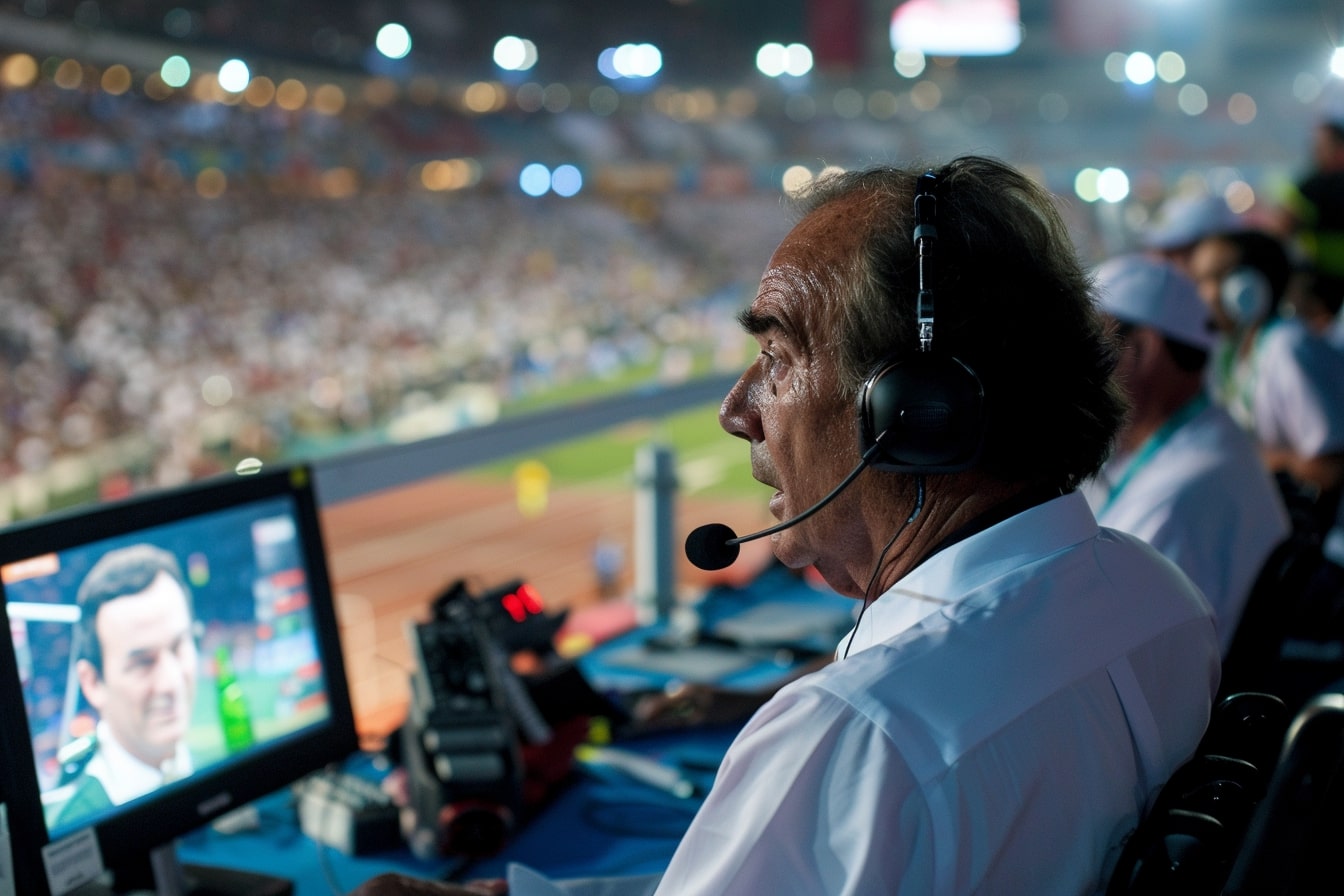
This is an AI-generated image created with Midjourney by Molly-Anna MaQuirl
On June 27th, 2024, US broadcaster NBC announced plans to use an AI version of veteran sports commentator Al Michaels for the Paris Olympic events. NBC's Peacock streaming hub will deliver a video summary covering the previous day’s bulletins each morning using a high-quality artificial intelligence-based recreation of Micheals’ voice.
The emergence of AI-powered voice innovation for the Olympics is a significant leap for media companies and hints at a promising future for creative and journalistic industries. This tool used in the ‘Your Daily Olympics Recap’ segment on Peacock is a testament to this potential. This segment will offer 10-minute highlight videos of event updates, athlete back stories and related content tailored to subscriber preferences. This historic tool will be accessible on web browsers and apps.
Michaels is a legendary sportscasting commentator. He is famous for working with NBC and ABC, and for iconically commentating on an ice game miracle at the 1980 Winter Olympics in New York. His voice has been well-known by audiences worldwide for decades. Initially, he was skeptical about his voice being used by the tool but was curious. When he heard his AI-generated voice, he felt it was accurate and perfect, reflecting his expertise and eloquence, and gave the platform consent to move forward with the tool.
Ethical concerns and misinformation arise when giant tech companies such as OpenAI utilize singers, actors and voices to train artificial intelligence systems without their consent. Recently, record labels sued AI music generator companies, for using artists' work without permission. As AI use cases expand, there is a new focus on the need for the responsible use of artificial intelligence systems to protect privacy, identities, music and copyrights.
To address the challenges, NBC has taken a proactive and meticulous approach:
Gaining artists' consent before model training
After voice model training, NBC editors review all the generated content, including audio and video clips, to ensure content is accurate and high-quality before it's available to users.
This commitment to the ethical use of AI in media is part of NBC's dedication to providing a responsible and trustworthy service, ensuring users can confidently enjoy AI-generated narration.

This is an AI-generated image created with Midjourney by Molly-Anna MaQuirl
On June 27th, 2024, US broadcaster NBC announced plans to use an AI version of veteran sports commentator Al Michaels for the Paris Olympic events. NBC's Peacock streaming hub will deliver a video summary covering the previous day’s bulletins each morning using a high-quality artificial intelligence-based recreation of Micheals’ voice.
The emergence of AI-powered voice innovation for the Olympics is a significant leap for media companies and hints at a promising future for creative and journalistic industries. This tool used in the ‘Your Daily Olympics Recap’ segment on Peacock is a testament to this potential. This segment will offer 10-minute highlight videos of event updates, athlete back stories and related content tailored to subscriber preferences. This historic tool will be accessible on web browsers and apps.
Michaels is a legendary sportscasting commentator. He is famous for working with NBC and ABC, and for iconically commentating on an ice game miracle at the 1980 Winter Olympics in New York. His voice has been well-known by audiences worldwide for decades. Initially, he was skeptical about his voice being used by the tool but was curious. When he heard his AI-generated voice, he felt it was accurate and perfect, reflecting his expertise and eloquence, and gave the platform consent to move forward with the tool.
Ethical concerns and misinformation arise when giant tech companies such as OpenAI utilize singers, actors and voices to train artificial intelligence systems without their consent. Recently, record labels sued AI music generator companies, for using artists' work without permission. As AI use cases expand, there is a new focus on the need for the responsible use of artificial intelligence systems to protect privacy, identities, music and copyrights.
To address the challenges, NBC has taken a proactive and meticulous approach:
Gaining artists' consent before model training
After voice model training, NBC editors review all the generated content, including audio and video clips, to ensure content is accurate and high-quality before it's available to users.
This commitment to the ethical use of AI in media is part of NBC's dedication to providing a responsible and trustworthy service, ensuring users can confidently enjoy AI-generated narration.